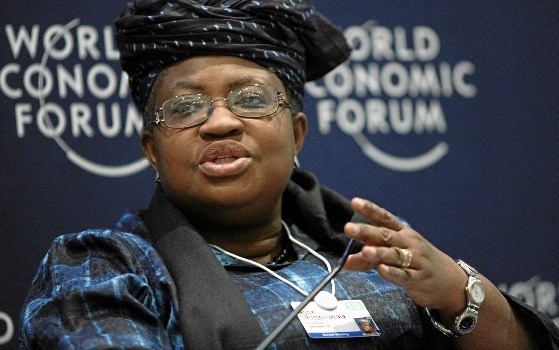The World Economic Forum’s (WEF) Annual Meeting 2024 saw Ngozi Okonjo-Iweala, Director-General of the World Trade Organization (WTO), call for a paradigm shift in how global leaders view and approach globalization.
While speaking in a session titled “No Recovery without Trade and Investment,” she argued that past models of globalization have left many behind, fueling discontent and undermining its overall benefits.
Her message underscored the urgent need for a more inclusive and equitable form of globalization, dubbed “re-globalization,” that prioritizes shared prosperity and addresses historical inequalities.
Okonjo-Iweala’s remarks highlighted the stark reality that previous globalization models, while generating wealth, haven’t distributed it evenly thereby widening the gap between the global south and the global north.
According to her, this has led to widespread discontent, particularly among those who were excluded from the economic gains.
She made reference to the recent emergence of the COVID-19 pandemic and geopolitical tensions like the Russia-Ukraine war which have further exposed the vulnerabilities of these models, urging a critical re-evaluation.
Okonjo-Iweala’s timely bell-ringing and spot-on-vision lies in “re-globalization,” a concept championed by the WTO.
This approach seeks to diversify and de-concentrate global supply chains, moving beyond reliance on a select few regions and industries. By actively engaging developing countries and regions with the necessary business environments, this diversification strategy aims to create new opportunities for growth and participation in the global economy.
Furthermore, Okonjo-Iweala provided concrete examples of how this “re-globalization” can be implemented.
She pointed to the growing partnerships between European economies and African nations, citing the recent alliance between Rwanda and the European Investment Bank as a positive step towards boosting investment in critical raw material value chains cross the globe.
These collaborations create opportunities for knowledge transfer, infrastructure development, and skills building in developing countries, paving the way for a more balanced and inclusive global system.
The sentiment of inclusivity extended beyond Okonjo-Iweala’s address as other panelists, including Canadian Deputy Prime Minister Chrystia Freeland, echoed the call for economic policies that prioritize the well-being of all citizens.
This collective recognition underscores the importance of shared responsibility in shaping a future where globalization works for everyone, not just a few privileged citizens of the developed economy.
Okonjo-Iweala’s message at WEF 2024 serves as a powerful global call to action. Her speech urged global leaders, policy shapers and makers to learn from the shortcomings of past models and actively build a more inclusive and equitable form of globalization.
By diversifying supply chains, engaging developing economies, and prioritizing policies that improve the lives of all, we can create a future where globalization truly delivers on its promise of shared prosperity and sustainable development.









